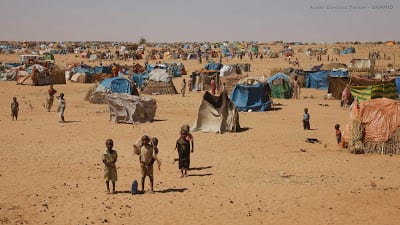
Is climate change an existential risk to Australian society and the world community? It’s not a difficult question, but one that climate minister Frydenberg has failed to answer.
The response should not be too challenging. An Australian Senate report released on 17 May this year, after an inquiry into the implications of climate change for Australia’s national security, found that climate change is “a current and existential national security risk”.
It says an existential risk is “one that threatens the premature extinction of Earth-originating intelligent life or the permanent and drastic destruction of its potential for desirable future development”.
The report was not opposed by the government Senators on the inquiry committee.
Mark Crosweller, the Director General of Emergency Management Australia, Sherri Goodman, an expert witness from the USA, and the former senior Shell executive and emissions trading advisor to the Howard government, Ian Dunlop, put the issue of existential climate security risks on the inquiry’s agenda.
On current trends, following the Paris Agreement, the world’s peoples may face catastrophic warming within a generation or two, with large parts of the planet uninhabitable and major food growing regions ruined by drought or rising seas.
The Paris commitments set Earth on a path of more than 3°C of warming, and up to 5°C when climate-cycle feedbacks are included.
Yet, a decade ago, leading security analysts in the United States warned that 3°C of warming and just a half-metre sea-level rise could lead to “outright chaos” as relations between nations broke down. Even the World Bank says “there is no certainty that adaptation to a 4°C world is possible”.
Following up on the Senate report, Adam Bandt MP asked the Minister for the Environment and Energy, Josh Frydenberg, the following question in writing on 21 May:
- Has (a) he, (b) his ministerial office, or (c) his department, read the report: What Lies Beneath: the Scientific Understatement of Climate Risk (David Spratt and Ian Dunlop, Breakthrough, September 2017).
- Has (a) he, (b) his ministerial office, or (c) his department, made any assessment of the propositions made in the report, particularly in respect of existential risk.
- Has his department sought advice or assessment from external organisations such as the CSIRO and the Bureau of Meteorology, or university climate specialists, on the report; if so, what was the nature of this advice, and can he provide it.
- Has his department considered the implications for policy-making of climate change being an existential risk to human civilisation.
- Can he indicate whether the Cabinet has considered the Government’s duty of care and fiduciary responsibility towards Australian citizens in light of the more severe risks raised in the report.
Most questions in writing to ministers receive responses within a few days, and there is a protocol that they should be answered within 60 days. So with 48 days having elapsed, the clock is ticking.
It is a matter of fact that both the minister and his department received the report What Lies Beneath, and it is very likely that his department sought advice on it.
The first duty of a government is to protect the people. A government derives its legitimacy and hence its authority from the people, and so has a fiduciary duty to act in accordance with the interests of all the people with integrity, fairness and accountability.
In the climate arena, this duty has been recognised in several quarters, including by Australian Prudential Regulatory Authority Executive Director Geoff Summerhayes.
So what’s the problem? Perhaps the minister does not want say “no”, climate change is not an existential risk, because the evidence is to the contrary, and he does not want to say “yes”, because that would imply a duty of care that his government has chosen not to exercise?
Source: Climate Code Red. Reproduced with permission.







